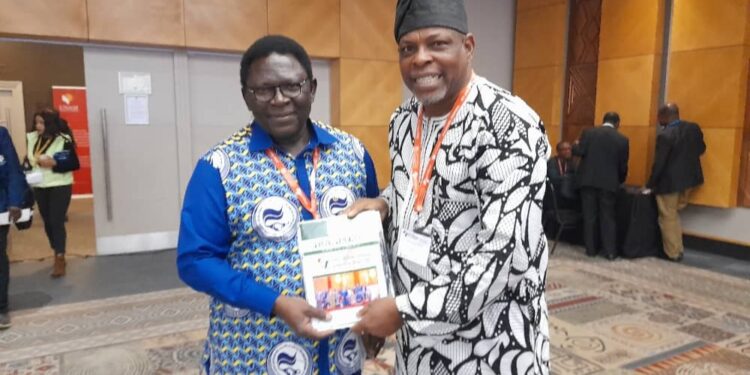The auspices of Association of African Universities (AAU) has listed causes of brain drain in Africa at the four-day Conference of Rectors, Vice Chancellors and Presidents of African Universities (COREVIP 2023) ended in Windhoek, Namibia recently.
A Nigeria Diaspora and also an Associate Professor with the University of Ilorin, Nigeria, Dr Abdulkarim Oloyede who made the lists, emphasized that instability in African countries is one of the major cause of brain drain in the continent.
Oloyede added that poverty, lack of infrastructure for research and development and health care, lack of motivation, future consideration, commitments, marriage and job offers are also part of the causes.
According to the statement by the Nigerians in Diaspora Commission Spokesman, Abdur-Rahman Balogun, the Conference had earlier noted with concern that brain drain has been one of the greatest challenges facing educational and other institutions in Africa.
The conference whose theme was “Advancing Excellence in African Higher Education’’ and under the auspices of Association of African Universities (AAU), had 16 sessions including the presentations of summary recommendations from all the sub- themes.
Oloyede stressed that, “Educational institutions in Africa need to find a way of dealing with the situation. “Africa needs to address brain drain syndrome in order to retain skilled workers, boost research capacity and knowledge production and socio-economic development’’.
Other factors according to the Acting Director, Centre for the Research Development and in-house Training (CREDIT), University of Ilorin includes challenges of diaspora exchange programs, limited funding.

“Cultural and contextual differences, limited awareness and engagement, immigration and visa issues, sustaining long term collaborations, perception and biases and lack of institutional policy”.
Oloyede recommended strengthen collaboration innovative ways, improve research and innovation ecosystems, develop attractive career opportunities, address socio economic challenges, diaspora engagement program.
Also, embrace digital technologies through ICT, digital mentoring, data sharing and collaboration on research, enhance institutional capacity, establish partnerships as well as establish strong alumni networks.
“Mobilizing Africans in the diaspora to support African Universities can bring significant benefits to both the institutions and the broader development of the continent’’, he submitted.

Presenting a jointly authored paper on mobilizing Africans in Diaspora to support African Universities, Professor Oloyede berated Academics sponsored abroad who are not returning home to give back to their country.
Contributing to the discussion, the Chairman/CEO, Nigerians in Diaspora Commission (NIDCOM), Abike Dabiri-Erewa emphasized on the importance of the Diasporas to national development recommending the Nigeria model with over 17 million in the Diaspora and $22 billion annual remittances.
Dabiri-Erewa, who spoke through the Commission’s Head of Media and Public Relations, Abdur-Rahman Balogun stressed the need for Africa countries to have a Commission, Agency or Ministry solely for Diaspora Affairs to be able to harness the potentials of African Diaspora.
In his closing remarks, the Secretary -General of Association of African Universities, Prof. Olusola Oyewole, said the conference had resolved that it will work towards advancing excellence in all ramifications especially in African higher education using its human and natural resources.













